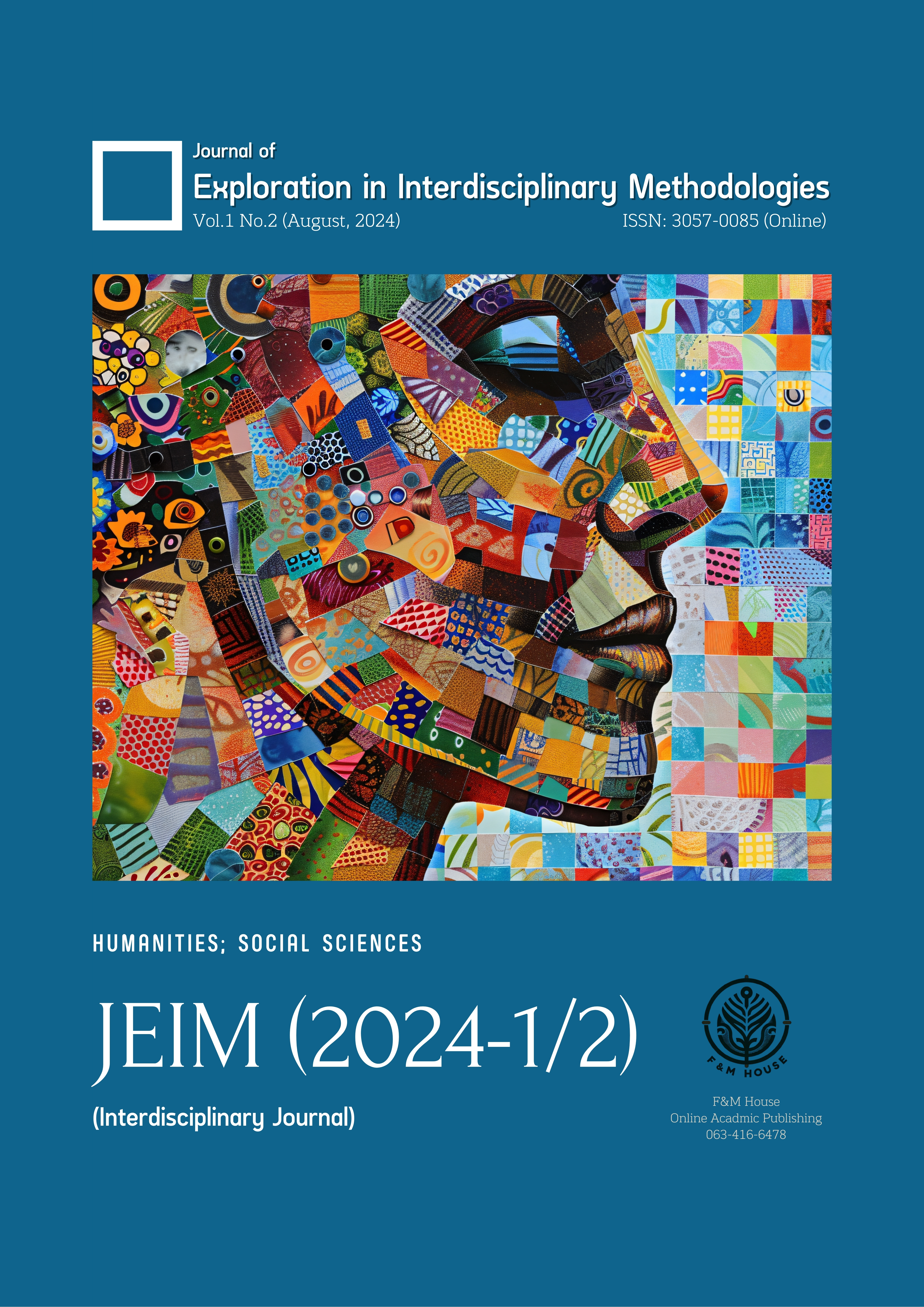The Intersection of Technology and Society: Ethical Implications of AI in Social Dynamics
คำสำคัญ:
Artificial Intelligence, Social Dynamics, AI Ethics, Privacy, Algorithmic Bias, Accountabilityบทคัดย่อ
This paper explores the ethical implications of artificial intelligence (AI) in shaping social dynamics. As AI becomes increasingly integrated into various aspects of life, it raises critical ethical concerns, including issues related to privacy, bias, discrimination, autonomy, and accountability. Through case studies in criminal justice, healthcare, and the workplace, the paper examines how AI can both benefit and harm society. It highlights the need for proactive governance, ethical frameworks, and interdisciplinary collaboration to ensure that AI serves as a tool for positive social change rather than exacerbating existing inequalities. The paper also discusses future directions for AI, emphasizing the importance of responsible AI development that prioritizes social well-being.
เอกสารอ้างอิง
Angwin, J., Larson, J., Mattu, S., & Kirchner, L. (2016). Machine bias. ProPublica. Retrieved from https://www.propublica.org
Autor, D. H. (2015). Why are there still so many jobs? The history and future of workplace automation. Journal of Economic Perspectives, 29(3), 3-30.
Bessen, J. E. (2019). AI and Jobs: The Role of Demand. NBER Working Paper No. 24235.
Binns, R. (2018). Fairness in machine learning: Lessons from political philosophy. Proceedings of the 2018 Conference on Fairness, Accountability, and Transparency, 149-159.
Brayne, S. (2017). Big data surveillance: The case of policing. American Sociological Review, 82(5), 977-1008.
Brynjolfsson, E., & McAfee, A. (2014). The Second Machine Age: Work, Progress, and Prosperity in a Time of Brilliant Technologies. W. W. Norton & Company.
Bryson, J. J. (2018). AI & global governance: AI & pro-sociality – what types of AI might contribute to global cooperation? United Nations University Centre for Policy Research.
Bughin, J., Seong, J., Manyika, J., Chui, M., & Joshi, R. (2018). Notes from the AI frontier: Modeling the impact of AI on the world economy. McKinsey Global Institute.
Burrell, J. (2016). How the machine ‘thinks’: Understanding opacity in machine learning algorithms. Big Data & Society, 3(1), 1-12.
Citron, D. K., & Pasquale, F. (2014). The scored society: Due process for automated predictions. Washington Law Review, 89(1), 1-33.
Coeckelbergh, M. (2020). AI ethics. MIT Press.
Dastin, J. (2018). Amazon scraps secret AI recruiting tool that showed bias against women. Reuters. Retrieved from https://www.reuters.com
Diakopoulos, N. (2016). Accountability in algorithmic decision-making. Communications of the ACM, 59(2), 56-62.
Eubanks, V. (2018). Automating Inequality: How High-Tech Tools Profile, Police, and Punish the Poor. St. Martin's Press.
European Commission. (2021). Proposal for a regulation laying down harmonized rules on artificial intelligence (Artificial Intelligence Act). Retrieved from https://digital-strategy.ec.europa.eu
Floridi, L., Cowls, J., Beltrametti, M., Chatila, R., Chazerand, P., Dignum, V., ... & Schafer, B. (2018). AI4People-An ethical framework for a good AI society: Opportunities, risks, principles, and recommendations. Minds and Machines, 28(4), 689-707.
Jiang, F., Jiang, Y., Zhi, H., Dong, Y., Li, H., Ma, S., ... & Wang, Y. (2017). Artificial intelligence in healthcare: Past, present and future. Stroke and Vascular Neurology, 2(4), 230-243.
Lee, K.-F. (2018). AI Superpowers: China, Silicon Valley, and the New World Order. Houghton Mifflin Harcourt.
Luckin, R., Holmes, W., Griffiths, M., & Forcier, L. B. (2016). Intelligence unleashed: An argument for AI in education. Pearson.
Lum, K., & Isaac, W. (2016). To predict and serve? Significance, 13(5), 14-19.
Mittelstadt, B. D., Allo, P., Taddeo, M., Wachter, S., & Floridi, L. (2016). The ethics of algorithms: Mapping the debate. Big Data & Society, 3(2), 1-21.
Müller, V. C., & Bostrom, N. (2016). Future progress in artificial intelligence: A survey of expert opinion. In V. C. Müller (Ed.), Fundamental issues of artificial intelligence (pp. 553-571). Springer.
Noble, S. U. (2018). Algorithms of Oppression: How Search Engines Reinforce Racism. NYU Press.
O’Neil, C. (2016). Weapons of Math Destruction: How Big Data Increases Inequality and Threatens Democracy. Crown Publishing.
Obermeyer, Z., Powers, B., Vogeli, C., & Mullainathan, S. (2019). Dissecting racial bias in an algorithm used to manage the health of populations. Science, 366(6464), 447-453.
Price, W. N., & Cohen, I. G. (2019). Privacy in the age of medical big data. Nature Medicine, 25(1), 37-43.
Rahwan, I., Cebrian, M., Obradovich, N., Bongard, J., Bonnefon, J. F., Breazeal, C., ... & Wellman, M. (2019). Machine behaviour. Nature, 568(7753), 477-486.
Richardson, R., Schultz, J. M., & Crawford, K. (2019). Dirty data, bad predictions: How civil rights violations impact police data, predictive policing systems, and justice. New York University Law Review Online, 94, 192-233.
Rosenblat, A. (2018). Uberland: How Algorithms Are Rewriting the Rules of Work. University of California Press.
Russell, S. (2019). Human compatible: Artificial intelligence and the problem of control. Viking.
Susskind, R., & Susskind, D. (2015). The future of the professions: How technology will transform the work of human experts. Oxford University Press.
Zuboff, S. (2019). The Age of Surveillance Capitalism: The Fight for a Human Future at the New Frontier of Power. PublicAffairs.







